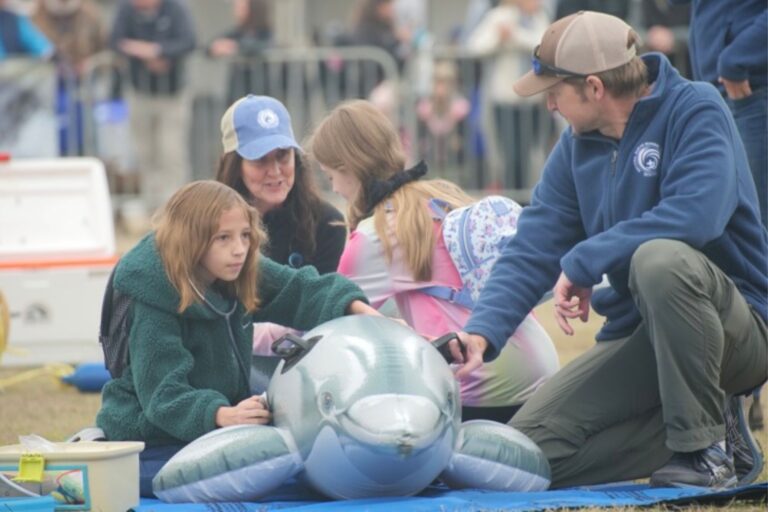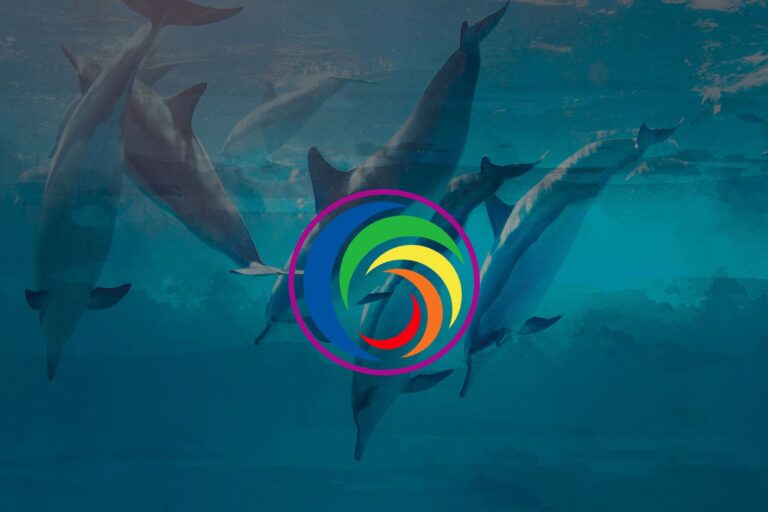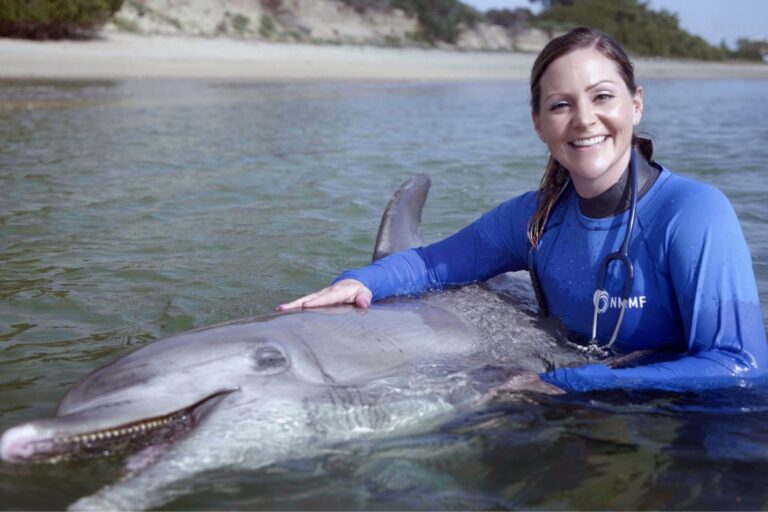The successes of the NMMF are built on a team of animal care and training experts, scientists, and veterinarians whose daily work complements the research, health, conservation, and educational aspirations of the NMMF.
The NMMF integrates the team’s experience providing exceptional care to the Navy’s marine mammals and contributions to the Navy’s extensive research with the NMMF scientific innovations aimed at improving the health and welfare of marine mammals, humans, and our oceans.
“It always seems impossible until it’s done.”
Nelson Mandela
Our professionals’ expertise is remarkable. The Navy values the animals for their sensory and diving capabilities—the bases for the development of systems and technology that help ensure the security of our country. NMMF team members participate in Navy research aimed at better understanding the animals’ capabilities. The studies have increased our knowledge about marine mammal hydrodynamics, sensory systems, and anatomy; and the behavior, physiology, and ecology of animals in the wild. It has produced demonstrable improvements in veterinary care and led to advances in mitigating the impact of sound on wild marine mammals.

It takes exceptional skill to train the animals to voluntarily partner with humans in the open ocean and accomplish remarkable tasks, including participation in physical examinations and sampling procedures essential to the animals’ health—which is providing baseline data for much research.
The knowledge acquired caring and training for the Navy’s animals made it possible for the NMMF to contribute to the rehabilitation of stranded California sea lion pups, assess the health of bottlenose dolphins in the Gulf of Mexico after the Deepwater Horizon oil spill, develop breath tests to assess the health of marine mammals, and detect subclinical metabolic conditions present in both wild and managed dolphin populations likely tied to changes in prey. Team members demonstrate their caring and commitment by volunteering their personal time to participate in NMMF educational outreach programs.
As we strive to be the nation’s leader in marine mammal science, we will continue to be challenged by critical questions about marine mammal health and aging, a changing environment, negative human interactions, links between human and animal health, and innovative approaches to conservation.





